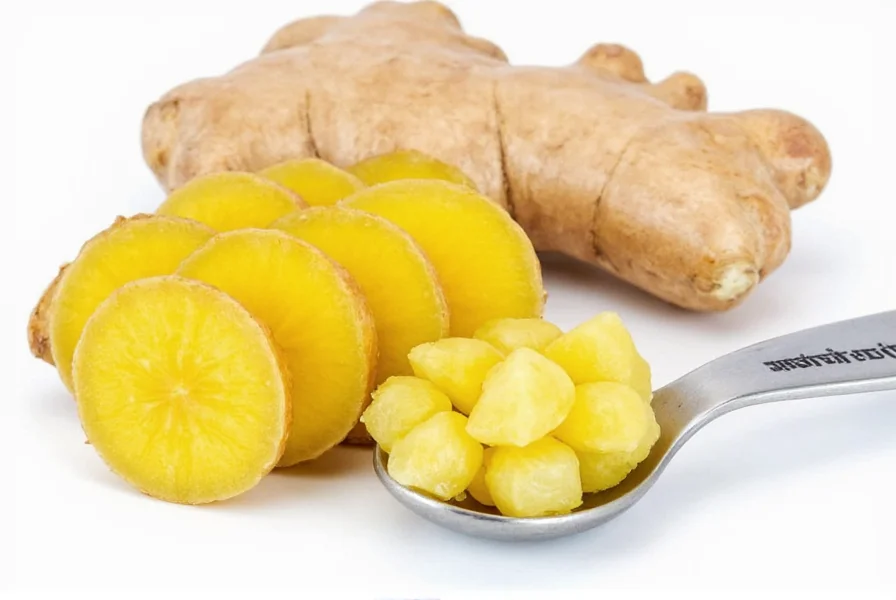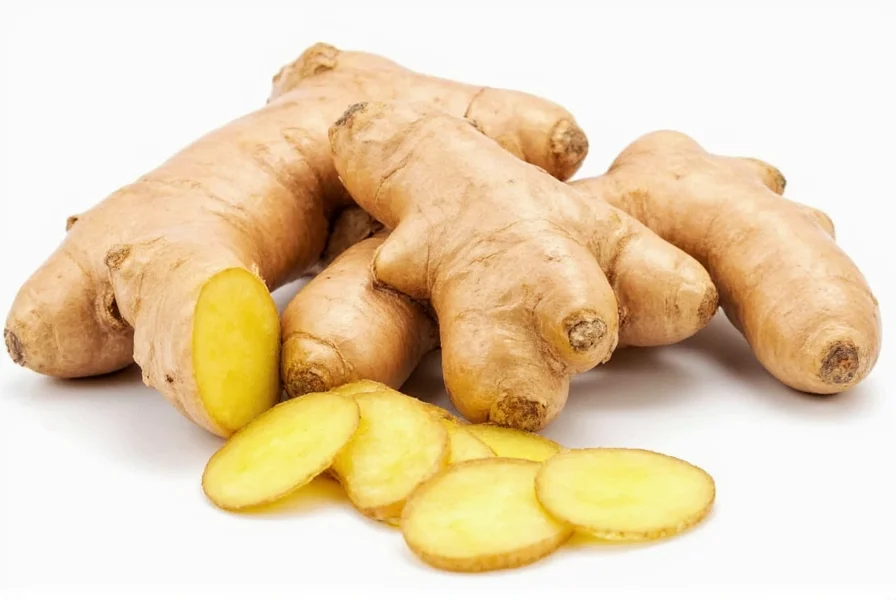Ginger has been used for centuries in traditional medicine systems across Asia and the Middle East for treating various pain conditions, including headaches. Modern science is now validating what traditional healers have known for generations. This comprehensive guide examines the current evidence on ginger for headache relief, proper usage methods, and important safety considerations.
Scientific Evidence Behind Ginger for Headache Relief
Multiple studies demonstrate ginger's effectiveness against migraines, the most severe form of headache. The active compounds in ginger—primarily gingerols and shogaols—work through several mechanisms that address headache physiology:
- Inhibition of inflammatory pathways (COX and LOX enzymes)
- Modulation of serotonin receptors involved in migraine development
- Reduction of oxidative stress in brain tissue
- Prevention of blood vessel constriction and dilation that triggers migraines
A landmark 2014 study published in Phytotherapy Research compared 250mg of ginger powder to 50mg of sumatriptan (a common migraine medication) in 100 migraine sufferers. After two hours, both treatments provided similar pain relief, but ginger caused significantly fewer side effects like drowsiness and heart palpitations.
| Study | Participants | Findings | Duration |
|---|---|---|---|
| Marjan Razavi (2014) | 100 migraine patients | Ginger powder as effective as sumatriptan for pain relief | 2 hours |
| Mustafa et al. (2019) | 48 chronic migraine sufferers | Reduced migraine frequency by 30% with daily ginger supplementation | 3 months |
| Altamimi (2020) | 60 tension headache patients | Moderate improvement in headache intensity and duration | 4 weeks |
How Ginger Compares to Conventional Headache Treatments
Unlike many prescription migraine medications that target single pathways, ginger works through multiple mechanisms simultaneously. This multi-target approach may explain why some patients find ginger effective when other treatments fail. While ginger generally works more slowly than triptans (about 30-60 minutes versus 15-30 minutes), it causes fewer side effects and doesn't carry the risk of medication-overuse headaches.
For tension-type headaches, the evidence is less robust but still promising. Ginger's muscle-relaxing properties may help alleviate the neck and shoulder tension that often triggers these headaches. Many users report that ginger tea provides gentle relief without the drowsiness associated with some over-the-counter pain relievers.

Practical Methods for Using Ginger Against Headaches
Several effective methods exist for using ginger to treat headaches. The optimal approach depends on your specific headache pattern and personal preferences:
Fresh Ginger Tea
This traditional preparation offers quick absorption and hydration, which is beneficial since dehydration often triggers headaches. To prepare:
- Slice 1-2 inches of fresh ginger root
- Simmer in 2 cups of water for 15-20 minutes
- Strain and add lemon or honey if desired
- Drink at first sign of headache
Ginger Supplements
Standardized supplements provide consistent dosing. Look for products containing 250-500mg of ginger extract with at least 5% gingerols. Take at headache onset or as directed by a healthcare provider for preventive use.
Topical Application
Some people find relief by applying diluted ginger oil to temples and neck. Mix 2-3 drops of ginger essential oil with one tablespoon of carrier oil (like coconut oil) and massage gently into affected areas.
Safety Considerations and Potential Interactions
Ginger is generally safe for most adults when used appropriately, but certain precautions apply:
- Avoid if taking blood thinners like warfarin without medical supervision
- May interact with diabetes medications by lowering blood sugar
- Use caution before surgery due to potential blood-thinning effects
- Pregnant women should consult their healthcare provider before regular use
- Maximum recommended daily dose: 4 grams of fresh ginger or 1 gram of powdered ginger
Side effects are typically mild and may include heartburn, diarrhea, or mouth irritation. Start with small doses to assess tolerance. If headaches persist despite treatment, consult a healthcare professional to rule out underlying conditions.
When Ginger Might Not Be Sufficient
While ginger shows promise for mild to moderate migraines and tension headaches, it may not be adequate for severe or chronic headache conditions. Consider seeking medical attention if:
- Headaches occur more than 15 days per month
- Pain is severe enough to disrupt daily activities
- Headaches follow head trauma
- You experience neurological symptoms like vision changes or weakness
- Over-the-counter treatments provide no relief
For chronic headache management, ginger may work best as part of a comprehensive approach that includes stress management, proper hydration, regular sleep patterns, and possibly other evidence-based treatments.
Frequently Asked Questions
How quickly does ginger work for migraine relief?
Most people experience relief within 30-60 minutes after consuming ginger tea or supplements. The 2014 clinical trial showed significant pain reduction within two hours, with effects comparable to sumatriptan. For best results, take ginger at the very first sign of migraine symptoms.
What's the most effective form of ginger for headache treatment?
Fresh ginger tea provides the fastest absorption and additional hydration benefits. However, standardized supplements offer consistent dosing of active compounds. A 2014 study used 250mg of ginger powder with good results. For immediate relief during a headache, ginger tea or crystallized ginger may work fastest due to quicker absorption through the mouth lining.
Can ginger prevent migraines when used regularly?
Yes, regular ginger consumption may help reduce migraine frequency. A 2019 study found that daily ginger supplementation reduced migraine frequency by approximately 30% over three months. The anti-inflammatory effects build up over time, making ginger potentially useful as a preventive measure for those with frequent migraines.
Are there specific types of headaches that respond best to ginger?
Ginger shows the strongest evidence for migraine relief, with multiple clinical studies supporting its effectiveness. It may also help with tension-type headaches, though the evidence is less robust. Ginger appears less effective for cluster headaches or headaches caused by underlying medical conditions. The anti-inflammatory properties make it particularly suitable for headaches involving inflammation or vascular changes.
How does ginger compare to over-the-counter pain medications for headaches?
Ginger works more gradually than medications like ibuprofen or acetaminophen but causes fewer side effects. Unlike NSAIDs, ginger doesn't irritate the stomach lining or carry risks of kidney damage with regular use. A key advantage is that ginger doesn't contribute to medication-overuse headaches, a common problem with frequent OTC pain medication use. For mild to moderate headaches, many people find ginger provides adequate relief without the drawbacks of conventional medications.











 浙公网安备
33010002000092号
浙公网安备
33010002000092号 浙B2-20120091-4
浙B2-20120091-4